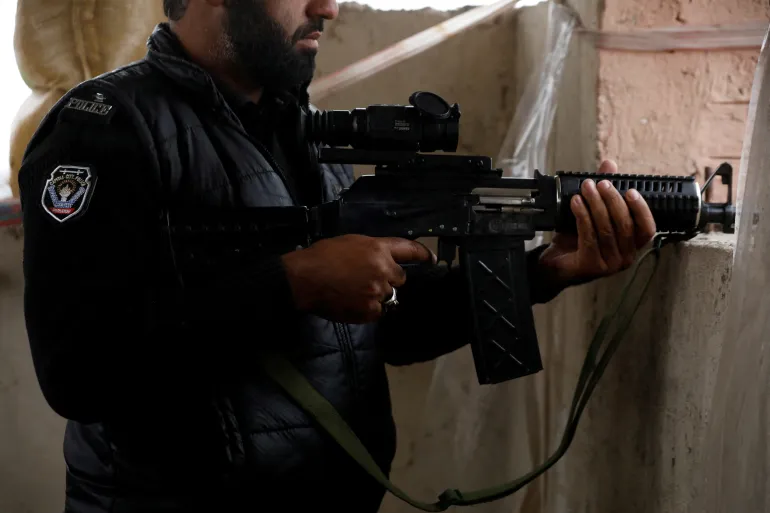Argentina bets on ‘RIGI’ to reverse decades of investor mistrust

U.S. President Donald Trump (L) welcomes Argentine President Javier Milei to the White House in Washington on October 14. Milei is seeking foreign support and investments. Photo by Will Oliver/EPA
BUENOS AIRES, Oct. 30 (UPI) — The Incentive Regime for Large Investments, or RIGI, is one of the main pillars of Argentine President Javier Milei’s economic plan. A recent report from the Rosario Board of Trade said projected investments under the program total $33.9 billion over a period of five to 10 years.
Of that amount, 46.5%, or $15.7 billion).already has been approved across eight projects. The most recent addition is one by Canada’s McEwen Copper, which plans to invest $2.7 billion in the Los Azules copper mine.
The remaining 53.5% is still under review, with only one project valued at $273 million rejected so far. It is the “Mariana” project by China’s Ganfeng Lithium, which began to produce lithium chloride in Salta earlier this year.
“Energy and mining are the leading sectors among RIGI applications. Together they account for 98.3% of the total so far, with 64.8% in mining and 33.5% in energy. Rounding out the total are investments in port infrastructure and steelmaking, each representing about 0.9% of all applications,” the report said.
The RIGI aims to provide stable conditions and a viable tax framework so that both foreign and Argentine investments can develop in a more favorable environment.
“Argentina is a country that has repeatedly failed to honor its commitments,” said Gonzalo Brest, tax and legal partner at KPMG Argentina. That’s why the measure seeks to address a longstanding problem in the country related to the lack of investor confidence, he said.
The RIGI’s benefits operate on two levels. One is exchange-rate, tax and customs stability for 30 years The state cannot alter the regime granted under RIGI during that period.
“That provides a degree of certainty that’s necessary for long-term investment,” Brest said.
In addition, significant tax reductions are available.
“That doesn’t mean they won’t pay taxes, but they’ll pay them at a much more reasonable level,” Brest said.
“RIGI addresses two of Argentina’s longstanding problems. One is the lack of investor confidence, and the other is a heavy tax burden. Now those conditions are reduced and maintained for 30 years,” he said.
Brest noted that the approved projects represent major investments, as each exceeds $200 million, (the minimum amount required to qualify.
“Most of the approved projects are in sectors that are strategic for the country,” he said.
“RIGI is a framework that covers many sectors of the economy, but the projects submitted so far focus mainly on three: energy, mining and oil and gas,” he added.
The BCR report said that of the $11.3 billion invested in energy projects, $6.9 billion corresponds to a natural gas liquefaction project by Southern Energy, which is owned by Pan American Energy and Golar LNG. The project involves Norwegian and Argentine capital.
Another venture, the Vaca Muerta Oleoducto Sur project, unites the country’s leading energy companies with an investment of $2.5 billion.
Together, the two projects account for 83% of RIGI energy investments.
Santiago Liaudat, a researcher at the National University of La Plata, said the purpose of the program is largely to draw outside investors and spur sales overseas.
“The goal is to create the argument that RIGI will generate favorable conditions for foreign investment, job creation and export growth. It is argued that Argentina’s legal uncertainty, instability and excessive regulation are the reasons foreign investment does not come to the country,” he said.
Liaudat said some of those arguments are valid and justify a special incentive regime, but he wasn’t so sure about creating jobs.
“But there is no guarantee that RIGI will generate local jobs. In fact, it does not specify anywhere that investment must be accompanied by job creation,” he said.
He also argued that the initiative does not include any incentives for investment to create demand for capital or intermediate goods within the country.
“It could be an investment that simply imports everything it needs for its production process. As a result, it creates unfair competition for Argentina’s industrial sector,” he said.
“These actors, who are part of RIGI, could import technology, capital goods and intermediate goods without paying taxes. This regime would have the unintended effect of harming Argentina’s productive network. Far from promoting job creation, it could affect local employment,” he said.
“Large capital, all large foreign capital — since there are few companies in Argentina capable of investing more than $1 billion — will enjoy exceptional investment conditions at the expense of Argentine capital that cannot benefit from those same advantages,” he said.


